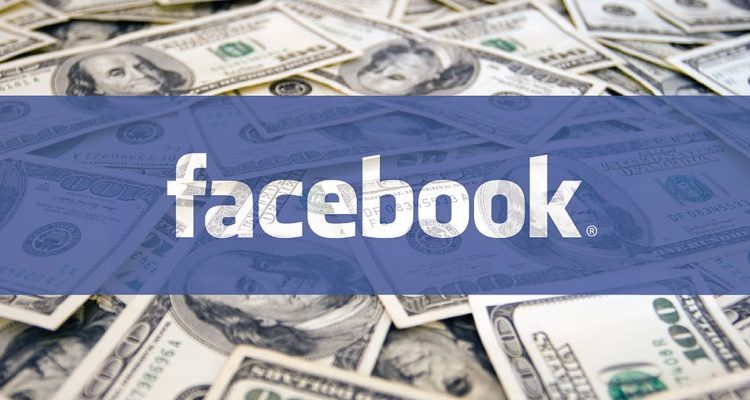
Photo Credit: flickr
The Russian narrative in the mainstream media has gone off the rails. Turn on CNN these days, and it’s wall-to-wall Russia and Trump. Every new tidbit of news is “explosive” or a “bombshell” or “astonishing.” And don’t forget about the print magazines and newspapers that nobody reads anymore – in an attempt to remain relevant and sell newsstand copies, they are hyping Russia at every turn.
Facebook and the Russia narrative
The latest example: TIME magazine is pushing the story that Russian operatives helped to spread lies and disinformation during the 2016 election campaign by buying Facebook ads that were anti-Clinton. It’s a story that’s sure to resonate with many Americans because it confirms everything that we’ve been hearing about Russia lately when it comes to hacking, meddling and potential collusion.
But what’s so disturbing about this latest story is that it drags Facebook further into this whole Russia narrative. We’re headed down a rabbit hole here, folks. There were already allegations that Facebook had become a vast conduit of fake news and disinformation during the 2016 election, much of it favoring Trump and negatively impacting Clinton.
But now the plot linking Facebook and the Russians is starting to thicken – or, at least, that’s what the mainstream media would have you believe. (Insert Anderson Cooper eye roll here) CIA Director John Brennan has been in Washington, DC recently, talking about the ways that “the Russians” recruit young business leaders and up-and-coming stars. One way of doing that is by throwing around cash.
Facebook’s Russian connection
And that’s where things get interesting because there’s actually quite a bit of Russian money sloshing around Facebook these days. Back in 2009, Russian “investors” (we like to use quotes because they make everything sound so much more nefarious) invested $200 million in Facebook, in exchange for a nearly 2% equity stake in the company. At the time, other investors valued Facebook at $4-5 billion, but the Russian “investors” valued the company at $10 billion. (What’s an extra $5 billion if the Kremlin paymasters are taking care of it, right?)
But hold on a minute here… There’s something about this story that sounds like it’s been adapted to fit the whole CNN Russian narrative. For one, the head of the company that invested in Facebook is one of the most respected venture capitalists in Silicon Valley these days. Yuri Milner is the same guy who helped to fund the Breakthrough Prize for our nation’s top scientists, along with Mark Zuckerberg and Sergey Brin. And he’s the guy behind Mail.ru (the free email service that Russians use, much like Gmail). So he really is an “investor.” His latest project is a $100 million partnership with Stephen Hawking to send interstellar probes to alien planets. (OMG, the Russians got to Hawking as well!)
Trying to tarnish the reputation of companies like Facebook by using allegations linked to “the Russians” is not only misinformed, it’s also dangerous. That would make Sergey Brin, a Russian-born entrepreneur and the co-founder of Google, also somehow suspect. Maybe Google changed its search algorithm back in November to help “the Russians” — someone call Anderson Cooper at CNN and let him know that Google’s search results helped to throw the election!
Oh, and don’t forget that Max Levchin, an original member of the “PayPal mafia,” has Russian connections (he’s Ukrainian). Maybe he’s also part of the “Russian mafia” – get this story to TIME magazine pronto. Maybe PayPal is just one vast Russian cash conduit leading directly to Trump!
Social media and half-baked conspiracy theories
At some point, the American people need to wake up and put away their tin foil hats. Conspiracy theories have been around for a long time (just ask anyone who was alive in the 1960s about JFK’s assassination), and the reason they gain credence is NOT because they are true, but because you can’t prove beyond a shadow of a doubt that they are NOT true. For people looking for explanations to incomprehensible events, conspiracy theories help to connect all the dots.
Thus… Trump couldn’t possibly have won the election, so the Russians must have helped him. The Russians got to Flynn. The Russians got to Wikileaks. The Russians hacked the DNC. The Russians took over Facebook. The Russians had compromising material on Trump. The Russians financed Trump. You can keep going, on and on, ad infinitum. And, no doubt, people will.
Here’s a prediction: these investigations into “the Russians” will keep going until 2018, and the reason why they will continue is, sadly, because of social media. People will keep sharing all of these conspiracy stories on Facebook, and they will call it “real news.”
In some cases, it may be real news. But in other cases, it may just be a lot of conjecture and speculation (because we want it to be true). The latest example is all the hullaballoo over Jared Kushner, who is now being linked to the FBI investigation into Russia. You can already see the fake news articles that could be created around this – “Billionaire Rich Kid Married to Ivanka Trump Is Actually Russian Spy! Click HERE to find out more.”
If this were all a Hollywood movie, this would be a fantastic plot twist at the very end. The President’s son-in-law is a Russian spy! Well, the more that people believe these stories, the less trust they are going to have in what pops up in their news feeds. It’s all about getting clicks, folks, that’s all it is.